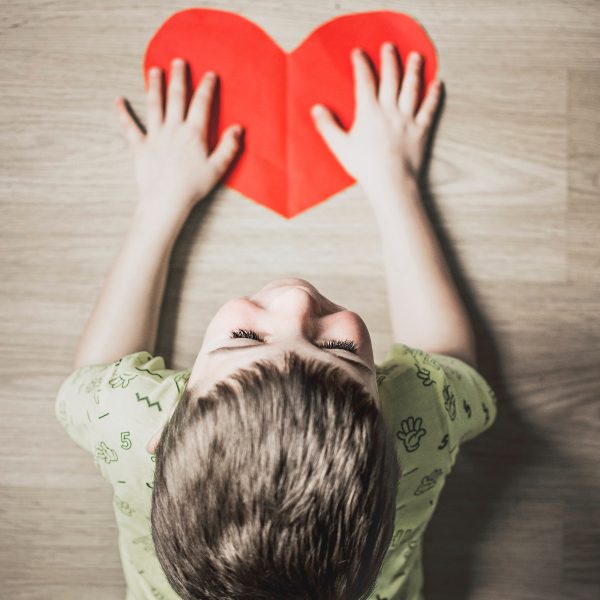LPBD conference keynote Dr Justin Coulson explains emotional intelligence

While many early childhood education and care (ECEC) professionals understand their role in supporting children’s learning and development, less understood is the concept of emotional intelligence, and how best to foster this.
One of the occasions when emotional intelligence is most required is in having difficult or challenging conversations – with children, with families, even with colleagues.
Dr Justin Coulson, renowned positive psychologist, will be addressing the Little People, Big Dreams Conference (LPBD) in a fortnight with his keynote ‘Force creates resistance: constructively approaching difficult conversations’ as well as discussing emotional intelligence at work.
The conference will provide participants with a range of national and local presentations that will highlight innovation, the latest research and best practice, and opportunities to interact with colleagues from across Australia and the Northern Territory.
The conference is the largest gathering in the Northern Territory of thought leaders, educators, teachers, academics, health professionals, policy makers, and other critically important practitioners and contributors in childhood learning and development from birth to 12.
Dr Coulson shares his thoughts, below, in relation to emotional intelligence. In essence, he says, emotional intelligence requires individuals to do four things:
1. Become aware of how we’re feeling
Feeling angry? Upset? Frustrated? Chances are high that an individual’s response may not be helpful if their feelings are heightened, or influenced by external circumstances. “Often we’re so caught up in the moment that we don’t pause to consider how we’re being affected. Yet this is vital to responding well,” said Dr Coulson.
2. Regulate our own emotions
Adults will often tell children to calm down, to relax, when they, themselves, are not. If the adult’s can’t manage it, is it fair to expect it of the children?
“We can’t ask something of our children that we can’t even manage to do ourselves. We’ve got to stay calm, kind, and connected,” Dr Coulson said.
“Emotions are contagious. It’s very, very challenging to help someone through their fear, sadness, or anger when our emotions are high. Knowing how we’re feeling (step 1) and regulating our emotions to keep ourselves in check allows us to think more broadly and helpfully in our efforts to help someone else,” he added.
3. Show empathy
How is this child (or the other person) really feeling? Are they old enough to regulate their emotions? What about their behaviour? Or is it too hard? Are they tired or so upset that they can’t control themselves? Do they know how to communicate their feelings?
While it’s tempting to tell someone, particularly a child (or an adult behaving like one) to “calm down” or “stop it”, they’re unlikely to follow our directives. Statements of instruction should always be preceded by statements of understanding.
“Empathy is feeling your emotion in my heart. When I know you get how it feels to be me, I’m more likely to listen to you. When I feel like you’re judging me, I get defensive and turn away,” Dr Coulson said.
4. “Work with” rather than “do things to” the other person
When individuals are in control of how they are feeling, and where the other person is, emotionally, real change can happen, Dr Coulson said.
“We recognise that the other person isn’t the problem…but they may be having one. So we work with them to figure things out rather than doing things to them as a punishment.”
Working with younger children, Dr Coulson noted, can be tough. “They usually have limited self-regulation ability, and even less emotional intelligence. Our best bet is to stay calm, show empathy and then as they catch our calm we can explain where those big emotions come from, shift the focus towards solutions (and away from the emotion itself), and gently empower them to come up with great ways to make things better.”
Some children, indeed, some adults, have high levels of emotional intelligence, intuitively knowing how they feel, how to regulate, have good perceptions of others’ emotional states, and work with them to keep everything calm.
For most people, however, emotional intelligence is a skill like any other, and one which takes time and practice to master.
“Learning how to be emotionally intelligent is a big challenge for children (and adults), but it’s a vital skill that improves relationships, wellbeing, and life,” Dr Coulson said.
To learn more about emotional intelligence, and using emotional intelligence to have tough conversations, book your ticket today for Little People, Big Dreams. Registrations are closing soon, and are nearly at full capacity.
Popular

Practice
Provider
Quality
Research
Workforce
New activity booklet supports everyday conversations to keep children safe
2025-07-10 09:00:16
by Fiona Alston

Quality
Practice
Provider
Workforce
Reclaiming Joy: Why connection, curiosity and care still matter in early childhood education
2025-07-09 10:00:07
by Fiona Alston

Quality
Practice
Provider
Research
Workforce
Honouring the quiet magic of early childhood
2025-07-11 09:15:00
by Fiona Alston












